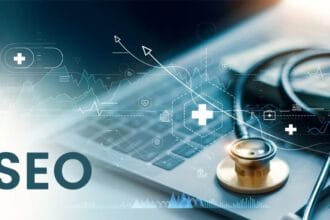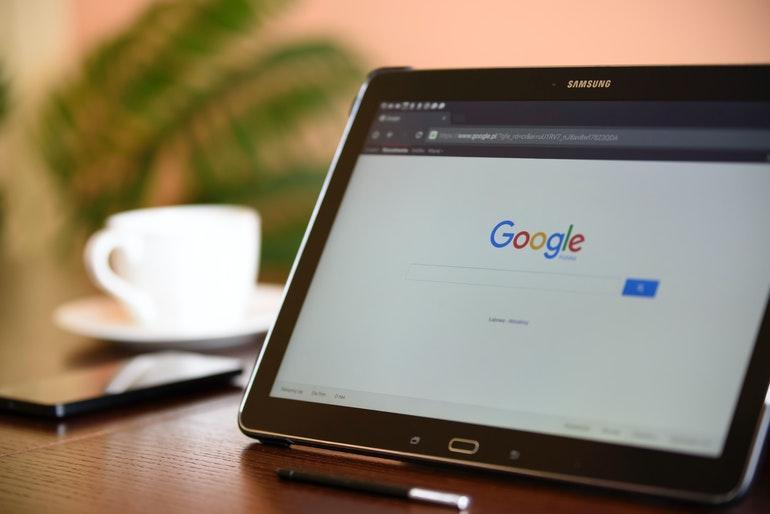
Gone are those times when businesses didn’t need to wait for Search Engine Optimization (SEO) strategies to do their work. A Brand’s reach and visibility take a considerable time when conducting organic growth strategies, and that’s the reason why digital advertising is in high demand.
Pay-per-click (PPC) advertising helps e-commerce businesses scale their growth faster than organic marketing models. With PPC, businesses can find their target audience without relying on search engine algorithms to rank their website’s presence. Brands can accelerate their growth through paid campaigns that give complete control to businesses to handle and navigate their digital growth. Nearly half (46%) of web users cannot distinguish between e-commerce PPC ads and organic search results.
How Does PPC for E-commerce Work?
PPC For E-commerce helps businesses advertise on multiple channels to target their audience with tailored strategies designed to promote their brand’s products and services at the right place and time. Some of the B2B PPC strategies are:
Keyword Management
Keyword identification is an elemental phase in PPC for the e-commerce segment. This service will include understanding customer search behavior and the appropriate industry within which to find related keywords or phrases that will match their audience’s search intent. In a typical scenario, PPC marketing agencies set out to find those high-volume keywords that are less competitive and come at lower bidding costs.
Google and Bing Ads Management
The two giants of paid campaign ads are Google and Bing. For this reason, PPC marketers endeavor to equip themselves with all relevant tools and expertise required to manage Google and Microsoft ads. They are awfully good at understanding Google advertising tools and know how to conduct PPC for e-commerce businesses within different platforms of search engines to guarantee growth and meet their audience segment needs and search intent.
Landing Page Optimization
In addition to creating ad campaigns, pay-per-click advertising goes to optimizing the landing pages and conversion pages that follow after a click on the ads. Getting clicks from the right audience is not enough if they don’t become qualified leads or conversions. E-commerce PPC optimization services ensure that landing pages are designed with compelling headlines, strong persuasive content, and details about the product, all ending with precise and scarce Call-to-Action (CTAs).
Paid Search Advertising
Paid search advertising is one of the primaries of PPC services. Agencies have all persons and software tools ensuring the perfect execution and growth of their digital ad campaigns. PPC for e-commerce grabs keywords, with pinpoint research on the relevance of those keywords, and creates ads that are compelling and appealingly persuasive in terms of bidding costs and overall efficacy for the business. They work on managing all the terms related to paid advertising, like improving the quality score, reducing bidding costs, and improving conversion rates.
A/B Testing
Usually, PPC management companies restrict their operations to the realm of digital advertising. However, they instead cover several fields and segments under their ads to obtain promising results. They work on creating several tests out of their marketing campaign, identifying what test or campaign will give better results. This involves testing and altering various participations and aspects of their ads, such as headlines, text overlay of an image, visuals, or CTs. A split-test result will only be performed with a sole aim: to determine which situation will give a better outcome.
PPC Management
Another area already mentioned is click-through rates. These areas include the management of PPC campaigns. The management of the shops involves copartnership with one PPC advertiser, bidders, and copywriters so that anybody benefiting from PPC does so without bias to ROI estimation from the business perspective. The performance tracking, A/B testing, and budget management of ad campaigns are in their review.
Benefits of Conducting PPC for e-commerce
Now that we have come to learn some of the effective services of PPC for e-commerce, let’s chat about some of its other benefits, which are of utmost importance:
Ability to Produce Fast Results
The biggest advantage of PPC for e-commerce is that it gives quick results and puts turbo jets in the brand’s digital growth than any other digital marketing medium. With fast and furious approaches, e-commerce business scenarios obtain their target audience with data-driven results.
Freedom of Customizing Ad Campaigns
Other than any channel, this is PPC’s big plus point: a flexible and customized marketing approach that lets companies steer their growth and switch directed marketing campaigns. Based on any changes in audience segments, businesses can customize and repurpose marketing campaigns in whichever way they want, which can include changing keywords or content to support ad performance optimization.
An Internet Traffic Generator and Visibility
PPC for e-commerce streamlines businesses’ traffic growth and increases their likelihood of earning leads and conversions through consistently paid traffic sources. This causes high visibility and noticeable growth for companies.
Winding Up
PPC for e-commerce adds value to businesses’ growth and potential through effective services like A/B testing, conversion optimization, and search ads management. With PPC, companies can increase their search engine growth and produce faster results that give promising growth to the brand’s digital presence.








